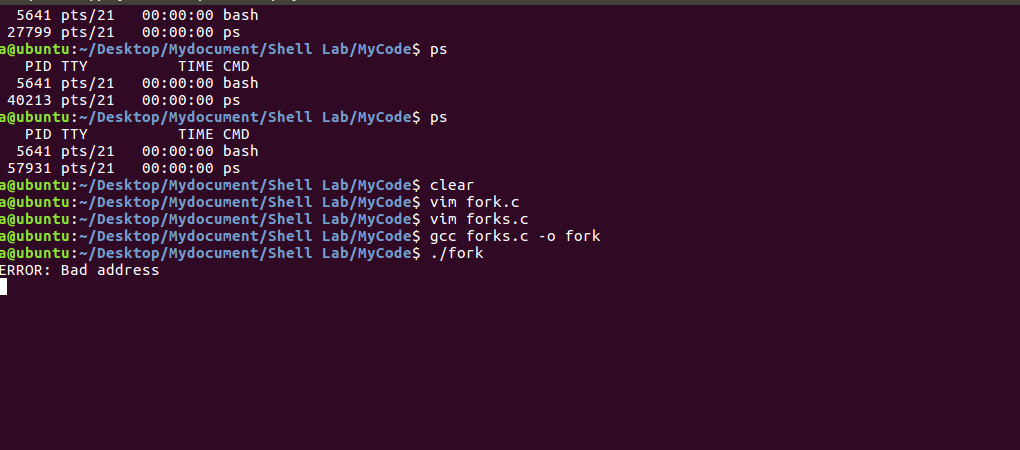关于Linux上 execve函数的参数argv的问题
今天学习了CSAPP的第8章异常控制流。在写shell时,调用了execve函数,出现了无法执行程序的问题.
先贴上代码:
extern char ** __environ;
void unix_error(char *msg) /* unix-style error */
{
fprintf(stderr, "%s: %s\n", msg, strerror(errno));
exit(0);
}
pid_t Fork(void)
{
pid_t pid;
if ((pid = fork()) < 0)
unix_error("Fork error");
return pid;
}
int main() {
pid_t pid;
char * myargv[] = {"/home/a/Desktop/Mydocument/Shell Lab/MyCode/hello"};
if( (pid = Fork()) == 0 ) {
int c;
if((c =execve(myargv[0], myargv, __environ)) < 0) {
unix_error("ERROR");
}
}else {
sleep(10);
}
return 0;
}
这是hello的源代码:
#include<stdio.h>
int main() {
printf("Hello, World");
return 0;
}
执行后:

出现了Bad address的问题
在查阅了书之后,有这么一张图:

在argv句段数组的最后一个单元是NULL,换句话说,argv数组以执行文件的文件地址为开始,以NULL结束。
于是修改代码为:
int main() {
pid_t pid;
// 在myargv中加入NULL
char * myargv[] = {"/home/a/Desktop/Mydocument/Shell Lab/MyCode/hello", NULL};
if( (pid = Fork()) == 0 ) {
int c;
if((c =execve(myargv[0], myargv, __environ)) < 0) {
unix_error("ERROR");
}
}else {
sleep(10);
}
return 0;
}
在myargv中加入NULL
运行结果:

成功!!!!
记录一下卡我一天的Bug。